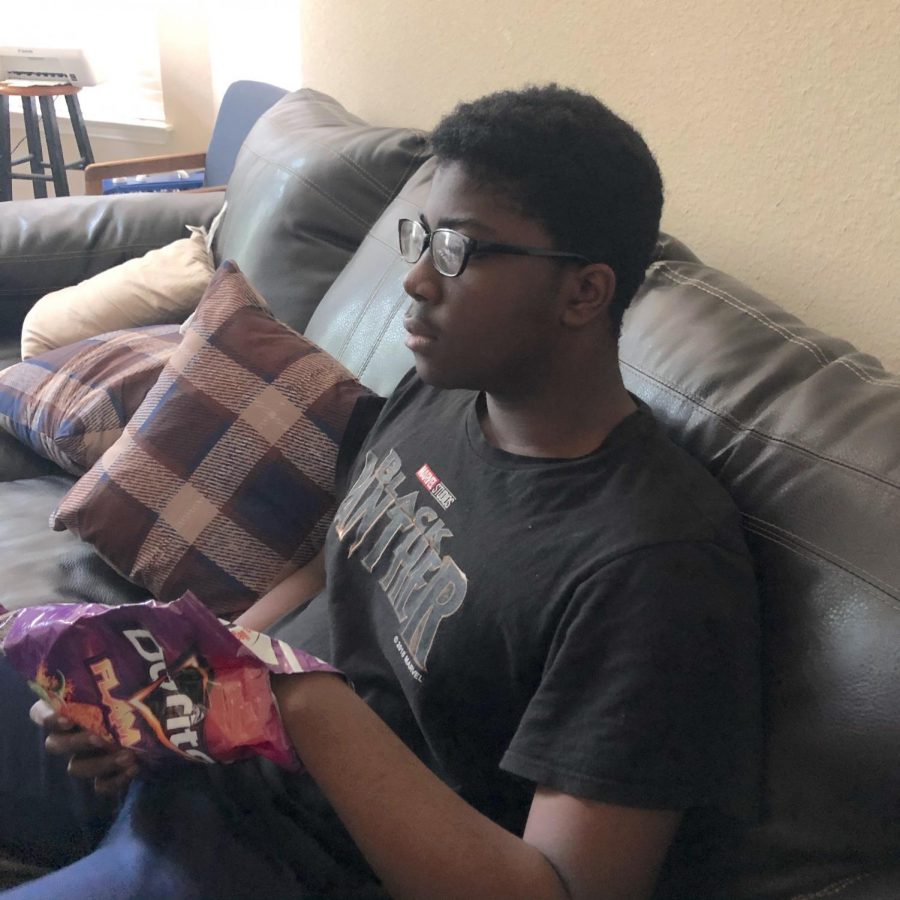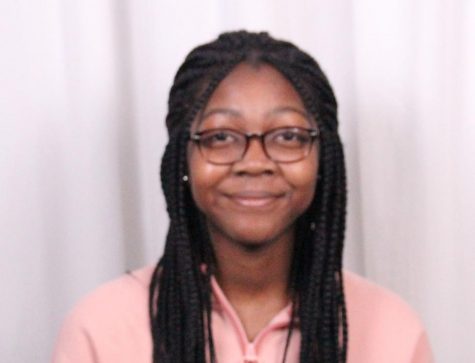COVID-19: The Eating and Sleeping Habits of Students
Now that schools have closed, some students may spend more time eating and sleeping.
Starting in mid-March, schools across the globe closed due to the Coronavirus (COVID-19) pandemic. As students continue their self-quarantining, which has been going on for nearly a month, they may develop some habits that can positively or negatively affect their bodies.
According to a March 2020 UChicago Medicine article written by Dr. Lisa Medalie, now is the perfect time for people to take advantage of getting adequate hours of sleep since they are likely not attending social events. Senior, Temi Morohunfola, has taken this advice, but not in the most beneficial way.
“If I’m being honest, my routine doesn’t even exist anymore. I get up later and I don’t really do as much study-work as I did when I was actually in school,” said Morohunfola. “My sleep schedule while I was in school was a mess, but it’s even more of a mess since I keep on going to bed later. The latest I’ve gone to bed so far is 4:45 AM.”
Morohunfola’s day times are shorter now that she has been sleeping in longer. Because of this, her “breakfast” meal would be considered by most as lunch.
“Now, I don’t eat my first meal until 2:30 PM, and it’s a really big meal. Then I wait maybe four to six hours until I eat again, and it’s another big meal. I eat a lot of snacks now, such as chips and high sodium foods,” said Morohunfola.
To cancel out some of her unhealthy habits, Morohunfola says that she has started taking better care of her body by exercising and eliminating the amount of junk food in her body
“I’ve started doing short 10-minute workouts so I don’t become a couch potato. I’m eating less sugary foods because whenever I’m stuck in one place for long periods of time, I have a tendency to start eating really bad. I also drink more water. I’ve started doing these now because I didn’t think I had time back when we were in school,” said Morohunfola.
Productivity wise, Morohunfola says that she finds it difficult to hold herself accountable because going to school required her to have a sense of routine, that of which she no longer has.
“The hours I have that I’m up and out are really short and my productivity levels have really decreased. School gave me structure, and now that I don’t have that, it’s kind of hard to force myself to keep a schedule since I don’t really have to, even though I need to,” said Morohunfola
Similar to Morohunfola, senior Avram Santiago’s sleep schedule consists of going to bed at a late time. However, Santiago says that he does his work more efficiently because it is given to him all at once.
“Lately, I’ve just been sleeping later than normal, but I usually already sleep late. Productivity wise, I still do my homework at the same time. I have been more productive because I like getting all my work done in one day, so I can have a break for the rest of the week,” said Santiago.
Santiago says that the reason he rarely sleeps on time these days is because he has less school-related responsibilities.
“My sleep schedule is later than usual because now I don’t have a requirement to get up, and the only thing I care about is due dates, rather than showing up to school,” said Santiago.
The closing of schools seems to have given students the idea that they are on an early summer break. For the entire second semester, Mansfield ISD has decided to stop counting any assignments given to seniors towards their GPA. Santiago says that this has shifted his mentality to where his grades do not have a significant impact on him.
“The Coronavirus has caused our GPAs and grades to freeze, so there hasn’t really been an incentive to make us work harder. In fact, it makes me lazier and it’s gotten to the point where in my mindset, the work is optional now. There aren’t mandatory commands anymore. Since everything is at home, it’s become more optional, even though it really isn’t,” said Santiago.
Now that students are no longer in school, this makes it easier for some to sleep for an extended amount of time. Junior, Christopher Ricks, says that although he has been getting more hours of sleep during this time, it is worrisome for him because this break will not last forever, and he will eventually be required to fix his schedule.
“I’ve started waking up around 12 PM, eating breakfast, working out, then I do my homework. I definitely get more sleep, but it’s not consistent. It kind of worries me because I know there’s going to be a time when I have to go back to school. This could possibly be a time of six months of no regulated schedule of any kind, and it’s going to be very disastrous trying to get back into waking up at four and five,” said Ricks.
While it may be tempting for some to binge-eat junk food during this stay-at-home period, Ricks says that his diet has actually improved, since he has more free time.
“I would say my eating habits are better now. I have more time to not eat unhealthily, so I can focus on getting my vegetables and vitamins now. I’m going back to swim that I took a break from, but I’m also not trying to feel like trash while I’m sitting in the house all day,” said Ricks.
Ricks says that he has less school work and obligations to attend to, which has ultimately caused him to lose his drive for school.
“I’ve started procrastinating more, even though I have more time to not procrastinate and I now have less motivation. I think my habits have changed because I don’t have as many responsibilities and I don’t have to wake up at a certain time,” said Ricks. “I should start regulating and create my own schedule pretty soon because school isn’t over yet, and I have summer plans. It seems like a healthy thing to get back on track.”
COVID-19 is affecting how students choose to take care of their bodies. As the amount of days of self-quarantine continues to increase, for some, the number of snacks in their pantry seem to decrease.



